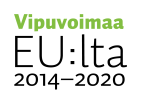The overall objective of the project is to increase social and health care staff’s occupational wellbeing, perceived mastery of work and productivity through the following objectives:
PROJECT OBJECTIVES ARE:
1) develop a remote leadership model for social and health care staff of decentralised organisations and strengthen
related competence
2) develop a remote work supervision model and peer support model for social and health care staff of decentralised
organisations and strengthen related competence
3) develop change management models and strengthen change management competence
4) develop structures and methods for staff participation


Goal
The social and health care reform and related digitalisation and introduction of online services are changing work in social and health care. The reform is significant for both staff and clients. It is about changing the working and operating culture, which requires strengthening of competence and new leadership. Along with the social and health care reform online services are seen as a possibility to rationalise operation and develop quality. At their best remote services and digital solutions will enable nearby social and health care services, leadership and work supervision.
In the new social and health care system, many superiors will work in decentralised organisations where their subordinated work units are located geographically apart. This emphasises the need for remote leadership and related competence. The Remotely More - Social and Health Care Work Is Changing project responds to the change in social and health care work by developing remote leadership, remote work supervision, remote peer support, change management and remote work and by strengthening related competence.
The overall objective of the project is to increase social and health care staff’s occupational wellbeing, productivity and participation and support staff through change management.
The national project is administered and coordinated by Tampere University of Applied Sciences (TAMK). The other project participants are the University of Eastern Finland,University of Lapland and Satakunta University of Applied Sciences. The pilot provinces of the trial phase are
Pirkanmaa, Satakunta, Northern Savonia and Lapland as well as virtual home care in Helsinki. In the project implementation and distribution phase the piloted operations models and practices will be developed further and distributed nationally.
Funding source
Contact persons
tarja.heinonen [at] tuni.fi